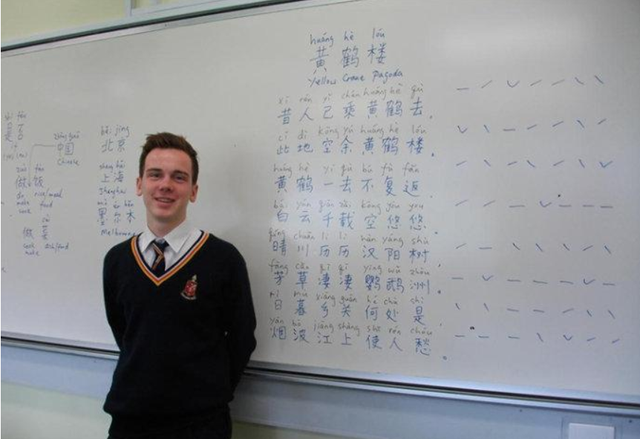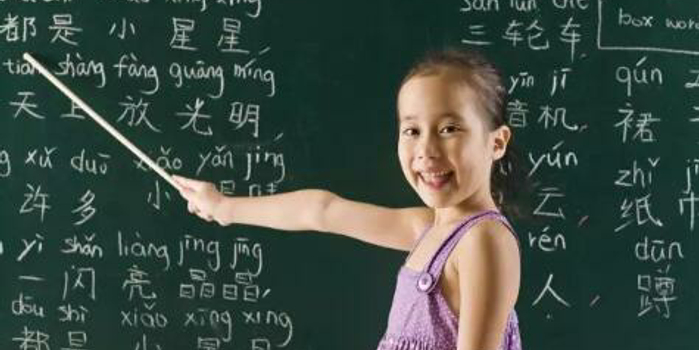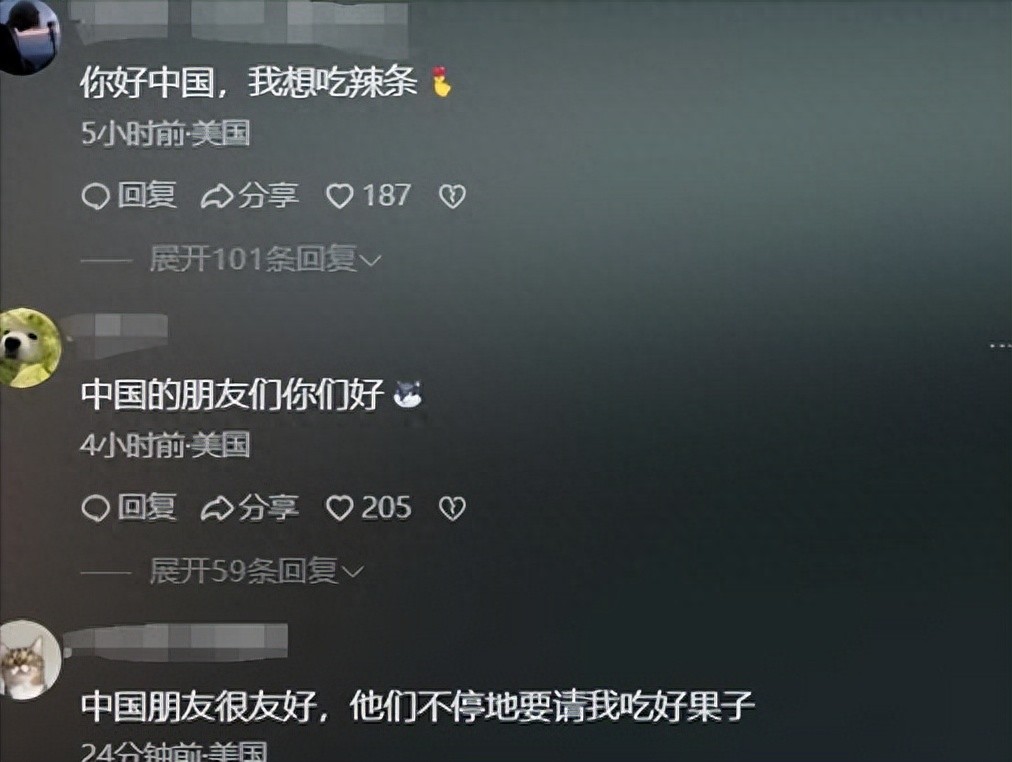My two daughters were both born in Australia. From the moment they were born, I made sure they got used to hearing Cantonese, giving them early exposure to their mother tongue. My husband and I had this perfect plan: speak Chinese at home, English at school, and raise them to be bilingual.
On her first day of kindergarten, my older daughter spotted colorful toys and charged right in. Without understanding the teacher or other kids' English, she started chattering away excitedly in her own mix of words and played with everyone. Gradually, at home during meals, she'd say "sik" (Cantonese for eat) and "eat" interchangeably. Hey, at least it showed some bilingual vibes.
When they started primary school, the girls would come home, toss their backpacks aside, and flip on the TV to watch kids' shows—all in English. They'd munch on snacks while glued to the screen, totally engrossed. I'd heard that kids pick up Chinese best from TV dramas because the language sinks in easily, so I grabbed some VHS tapes of Chinese shows like Pleasant Goat and Big Big Wolf and Journey to the West to shift their interest. But they shook their heads and refused to bite.
On weekends, I took them to Chinese school, where the teacher taught classics like Disciple's Regulations and Three Character Classic. They recited along, and it sounded smooth, but they didn't really grasp it. Once home, everything went right back to the teacher. After a few classes with zero progress, their initial enthusiasm fizzled, and they flat-out refused to go.
I'd been a middle school teacher and a writer myself, so I thought, why not teach them myself? I bought a blackboard and chalk, and turned our balcony into a weekend classroom. At first, it was novel—they sat up straight, practicing writing their Chinese names stroke by stroke and counting "one, two, three, four." But after a couple of weeks, the novelty wore off, the classes fell apart, and the blackboard became a canvas for their doodles.
Every weekend, some Australian women would knock on our door for chats. To my surprise, they'd speak flawless Mandarin. When I asked, they said they'd learned locally and then trained in China. Watching them chat away fluently while my daughters stared blankly, wide-eyed and confused, I told the girls: "They speak Chinese, but if a blue-eyed foreigner on the street asks you—a black-haired Chinese girl—in Chinese, and you can't even understand your own mother tongue, wouldn't that be embarrassing?" They shot back, "We've never been to China—can it really be our mother tongue?"
Fine, then. During their primary school break, I took them back to my hometown to experience it firsthand, especially heading to Beijing for a dose of Chinese culture. As soon as we climbed the Great Wall, they waved and shouted, "Great Wall, look!"—just like their teacher had described in class. I quickly corrected them: "It's called 'Changcheng' (Great Wall)." They remembered that. At the Forbidden City, surrounded by imperial architecture and artifacts, they were dazzled but clueless. The guide's explanations left them baffled, so they tugged at me for translations. I told them, "This isn't something you can sum up in a sentence or two. If you don't learn Chinese well and watch Chinese media, aren't you basically blind right now?"
Back in Sydney, they asked to buy the DVD of the animated Mulan because it featured the Great Wall and ancient buildings. Before, they'd just enjoyed the movie for fun, but now, having seen the real thing, it felt personal—they wanted to rewatch it obsessively. My younger daughter even got an English-Chinese picture dictionary with audio, practicing pronunciations and mouth shapes, constantly asking me if she was right. One day, she announced she wanted to go to Sichuan. Why? "To eat hotpot!" I was stunned—aren't you afraid of the spice? As a Cantonese guy, I can't handle it. She said she'd tried it in Chinatown and loved it, especially mapo tofu.
Later, after they started working—one as a physiotherapist, the other in media web design—they got adventurous. The older one said she wanted to check out Shanghai on her own; the younger aimed for Sichuan. I suggested we go back to Guangzhou first so they could chat with Grandpa and Grandma and practice their Chinese.
At Grandpa's house, we found the 96-year-old hunched over, practicing calligraphy. The girls asked what he was doing. "Practicing brush writing!" he replied. They looked puzzled. He explained it was an ancient Chinese art, and for the first time, they had a real conversation with him. At Grandma's, they found plenty to talk about too. Grandma was surprised—they'd never chatted that long before.
I noticed that on this trip, unlike last time when they'd hit up McDonald's and KFC, they sought out all sorts of regional cuisines from across China. Back in Sydney, with my Chinese palate, we mostly cooked Chinese food at home, so they'd often whip up Western meals for themselves. Dinner tables usually had two sets of dishes. This time, their taste buds had evolved, and it made me happy.
Girls love shopping malls and bargains. They discovered Guangzhou's malls are huge, modern, and full of brand stores, so they'd drag me along every outing. They'd dart around excitedly while I, lacking the energy, sat scrolling my phone. They'd pull me up: "Some words we don't get—translate!" The older one asked what the cashier said; I explained she was asking about a membership card for an 80% discount. The younger wondered about the sales clerk; I said buying two items got a bigger deal. Once they understood, they bought stuff and felt satisfied. They also realized that mastering Chinese isn't just about recognizing characters and pronunciation—it's about grasping thought patterns, expressions, and the cultural depth behind it. I seized the moment: "Without good Chinese and knowledge of the country, things get inconvenient fast. I can't always be trailing you." During the day, they climbed Guangzhou Tower for a city view; at night, they cruised the Pearl River, finally getting what "Little Waist" (a nickname for the tower) meant. Hands-on experience doubled the results.
Back in Sydney, they seemed more interested in learning Chinese and its culture. The older one signed up for a dumpling-making class and made some for us to try. I praised them: "Tastes good! But your mom could teach you—why pay for a class?" She grinned: "It's formal and fun." Ah, young people—fun is the motivator.
One day, the younger one told us she'd enrolled in a Chinese class. I said, "No need to spend money—we can teach you every day!" She shook her head: "At home, you teach Cantonese. The class is Mandarin, and learning with others is more fun." I get it—language learning can't be rote memorization behind closed doors; it needs an environment and vibe to make it stick and practical.
Recently, I spotted a small blue dragon tattoo on my younger daughter's arm and questioned it. She shrugged: "I'm a Dragon zodiac—aren't I a descendant of the Dragon? What's wrong with that?" I hope she's truly embracing it and finding her roots in ancestral culture.










